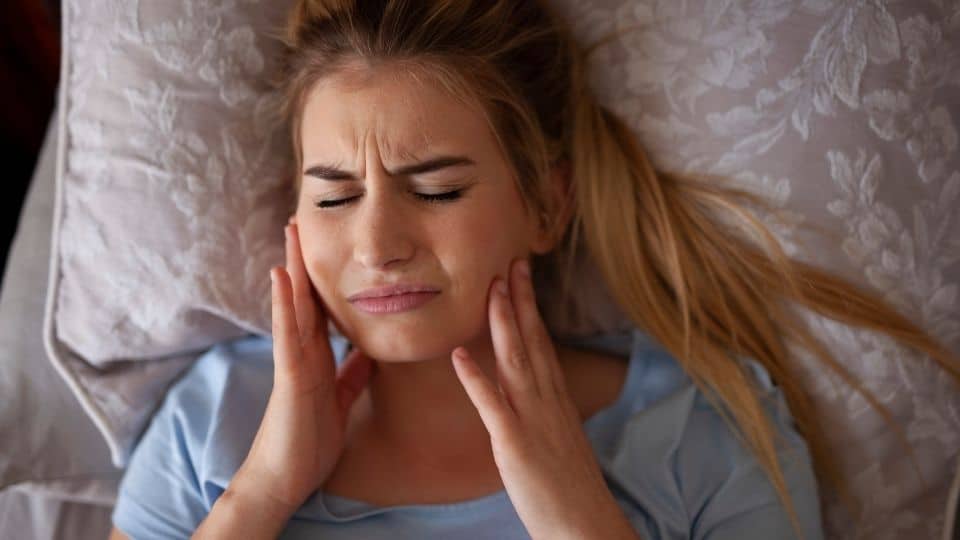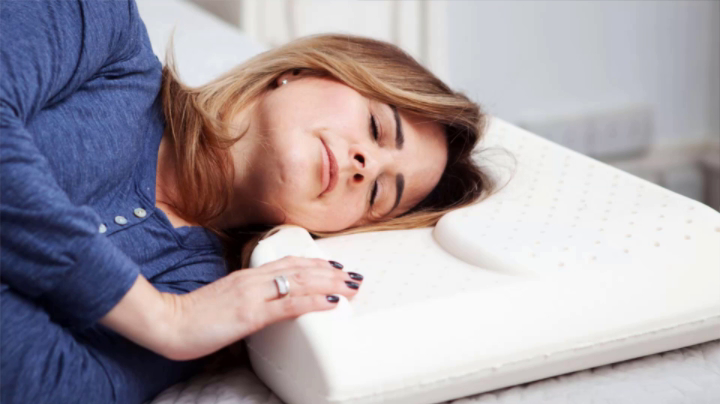If you’re like many people, you may be struggling with jaw tension causing neck pain. These are both common issues that can cause a lot of discomforts. Luckily, there are some simple steps that you can take to help relieve the tension and pain. This blog post will discuss some of the best ways to reduce jaw tension and neck pain. We’ll also share some helpful tips for keeping these issues at bay. So if you’re looking for relief, keep reading!
As a general rule, jaw pain may lead to tension and stiffness in your neck. This is because the muscles in your neck are connected to your jaw, meaning that any tension in your TMJ can quickly spread to your neck muscles. This can cause several problems, including aches, spasms, and reduced flexibility.
As an ergonomic consultant with over 30 years of experience in practicing chiropractic, I have a published ergonomic book; on the subject of sitting, spoke on this subject on national tv, a YouTube channel on posture videos, and have designed orthopedic pillows for the jaw and neck pain. So, I’m confident that I can help you. So please, don’t suffer any longer – keep reading!
All Day Comfort & Support
4 Simple Tips to Avoid Jaw Tension and Neck Pain
- Avoid clenching your teeth or grinding them together.
- Massage your jaw and the muscles in your neck to help loosen them up.
- Sleep on your back, taking the pressure off your neck and jaws.
- If you work at a desk, try to adjust your posture to align your head with your spine.
What Causes Jaw Tension or Neck Pain?

How Can I Relieve Tension in My Neck and Jaw?
One of the most common things people experience is tension in the neck and jaw. This can be caused by many different things, such as stress, poor posture, or even teeth grinding. The good news is that there are many ways to relieve this tension. One easy way to start is by massaging your neck and jaw muscles.
Black Friday: 35% Off Today
Typical Delivery 1-3 Days
You can also try using a warm compress to help relax the muscles. Another option is to do gentle stretching exercises, such as tilting your head from side to side or moving your jaw up and down. If you find that the tension is still not going away, you may want to consult with a doctor or chiropractor to see if there is a more severe issue.
What Causes Tightness in Neck and Jaw?
Our doctors’ most common complaint is, “I have a tightness in my neck and jaw.” Various things can cause this, but it is often due to muscle tension or misalignment.
If you are into super easy and inexpensive alternatives to office chairs, I wrote a fantastic article on how and why you should consider these options for back pain, and I encourage you to read it!
All Day Comfort & Support
When your neck and jaw muscles are tight, it can cause pain and limit your range of motion. This can be caused by stress, poor posture, or excessive time hunched over a computer or phone. Additionally, this type of tension can lead to headaches and migraines.
How Do You Relax Your Tense Jaw?
You must relax your jaw muscles to prevent any long-term damage if you find yourself clenching or grinding your teeth. There are a few different ways that you can do this.
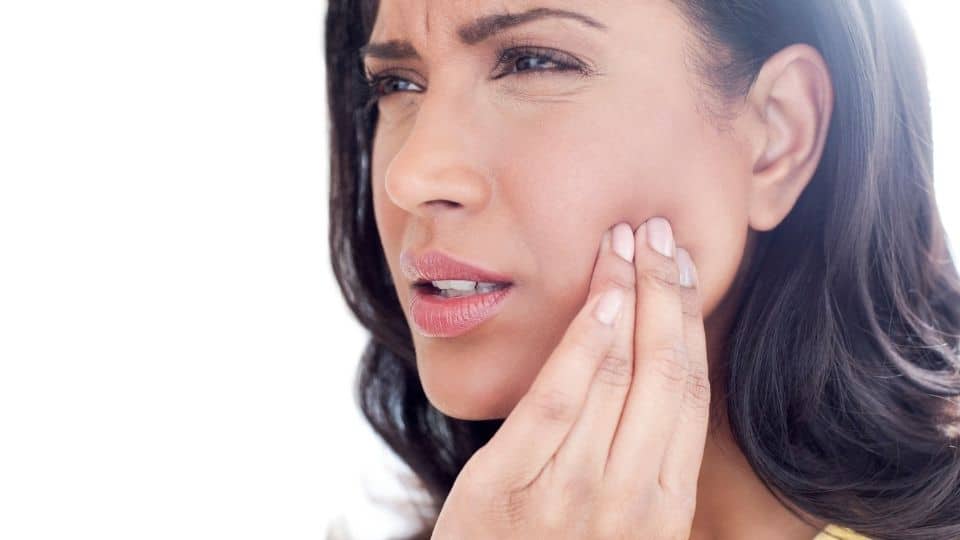
One is to place your tongue behind your top teeth and push gently outward. You should feel your jaw muscles start to relax. Another way is to massage the muscles in your jaw using your fingers. Start by placing your index fingers on either side of your mouth just below the cheekbones. Then, massage the muscles downward towards the chin using gentle circular motions.
You can also try opening and closing your mouth slowly a few times to help loosen up the muscles. If you’re still tense, try holding a warm cloth against your cheek for a few minutes.
If you find that your teeth are starting to wear down from clenching or grinding, it’s essential to see a dentist right away. They can help fit you for a mouth guard or splint, protecting your teeth and preventing further damage.
Black Friday: 35% Off Today
Typical Delivery 1-3 Days
Does Your Jaw Hurt With COVID?
The first sign of COVID-19 is a sudden, severe headache for many people. But some also report unusual jaw pain as one of their symptoms. This pain is often described as a dull ache that worsens when chewing or talking. It can be intense enough to wake people up at night.
The good news is that this symptom is usually not a sign of a more severe condition. However, if you are experiencing unexplained jaw pain, it is essential to see your doctor to rule out other potential causes. In the meantime, over-the-counter pain relievers can help to ease the discomfort.
How Do You Relax Tight Muscles TMJ?
The temporomandibular joint (TMJ) is a small, complex joint in front of the ear where the skull and lower jaw meet. The TMJ allows the lower jaw to move freely, making it possible to talk, chew, and yawn.
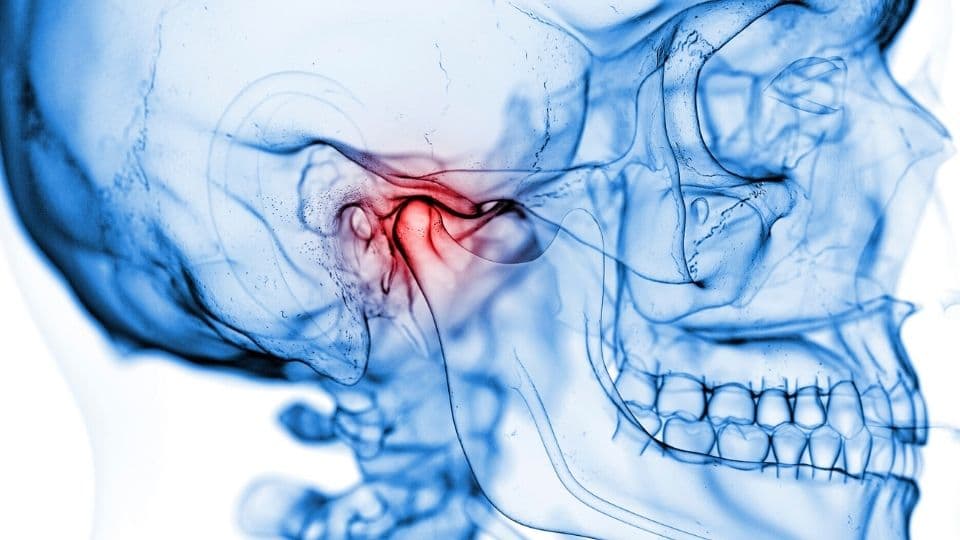
Unfortunately, this joint is also susceptible to several problems that can cause pain and dysfunction. One common issue is tight muscles around the TMJ. This can be caused by teeth grinding, clenching, or other habits that put undue stress on the joint. It can also be a side effect of arthritis or other disorders that affect the joints.
Treatment for tight TMJ muscles often begins with simple lifestyle changes such as avoiding hard foods, using a mouth guard at night, and practicing relaxation techniques. If these measures don’t help, your doctor may recommend physical therapy or injections to relax the muscles. Surgery is rarely needed.
If you have tightness in your TMJ muscles, it’s crucial to identify and avoid any habits that may be causing or exacerbating the problem. Common culprits include teeth grinding (bruxism) and clenching, which can stress the joint and lead to pain and dysfunction.
Other habits contributing to TMJ problems include gum chewing, nail-biting, and eating hard foods. If any of these are a regular part of your routine, try to cut back or stop altogether. In some cases, simply changing your diet can make a big difference. For instance, avoiding chewy or hard foods can take some of the strain off your TMJ.
How Can I Relax My Jaw From Anxiety?
Anxiety can cause many physical symptoms, including a tight jaw. It can be highly uncomfortable if you’re struggling with anxiety and your jaw is always clenched. You can do a few things to relax your jaw from anxiety.
First, try to be aware of when you’re clenching your jaw and make an effort to stop. Second, massage your jaw muscles periodically throughout the day. Third, do some relaxation exercises or take deep breaths when your jaw tightens up.
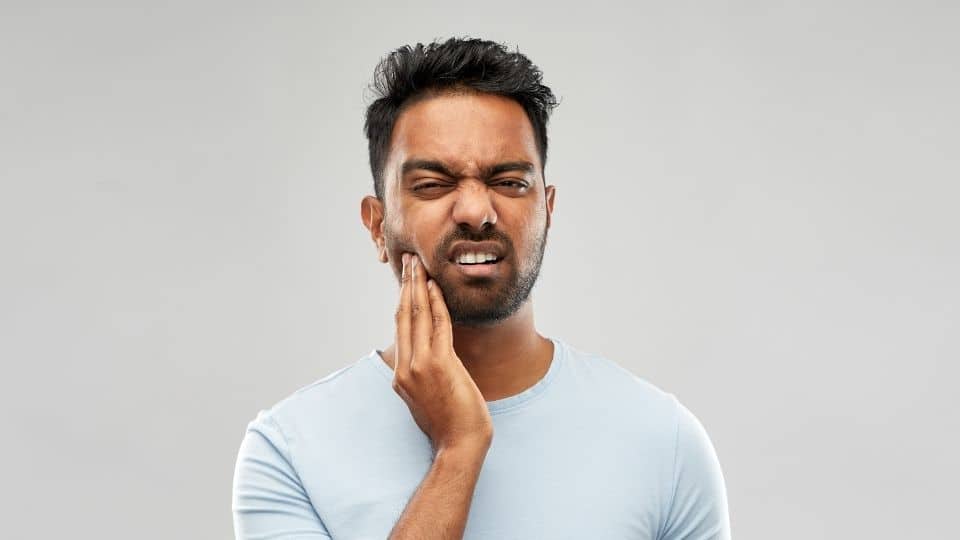
If you’re still having trouble relaxing your jaw, consult with a doctor or therapist who can help you manage your anxiety. With some effort, you should be able to relax your jaw from anxiety and alleviate some of your symptoms.
Can Tight Neck Muscles Cause Jaw Clenching?
For many of us, stress manifests in physical tension, especially in the neck and jaw. This can lead to teeth grinding (bruxism) and jaw clenching, which can cause many problems, including headaches, TMJ, and even tooth damage.
But what many people don’t realize is that tight neck muscles can be the cause of this clenching and grinding. When the muscles in the neck are tight, they pull on the temporomandibular joint (TMJ), resulting in teeth grinding or clenching. This is why massaging the neck muscles can effectively relieve stress and tension and may even help prevent bruxism and jaw clenching.
So if you find yourself clenching or grinding your teeth, a neck massage may be worth trying to see if it can help relieve the tension and stress that may be causing these habits.
I’ve written a complete hands-on review about why your stomach is flat until you sit down, and here are some of the shocking issues I ran into in this post!
How to Treat TMJ at Home
Here is a video that I made with TMJ expert Dr David Arteaga MD:
What Causes TMJ to Flare Up?
There are many potential causes of TMJ flare-ups. Most common include stress, teeth grinding, and jaw clenching. While these habits may seem innocuous, they can put a lot of strain on the temporomandibular joints (TMJs). This can lead to pain, inflammation, and other symptoms.
Additionally, many underlying medical conditions can contribute to TMJ flare-ups. These include arthritis, fibromyalgia, and Lyme disease. Treatment for TMJ flare-ups typically focuses on relieving pain and inflammation.
However, addressing the underlying cause is also essential for preventing future episodes. In some cases, this may involve making lifestyle changes or taking medication. Surgery is generally only considered a last resort.
How Should I Sleep with Headaches, Neck Symptoms and Jaw Pain Stress?
If you’re suffering from neck or shoulder pain, you might be wondering how to sleep with less pain. The good news is that you can do a few things to get relief. First, it’s essential to choose the right mattress and pillow. A medium-firm orthopedic mattress will provide the best support for your neck and shoulders. And a contoured natural latex pillow is the best option for aligning your neck and shoulders while you sleep. The pillow should have a cutout to cradle your shoulder and be soft enough to provide comfort for your ear and jaw. With the right mattress and pillow, you can finally get the restful sleep you need to heal.
Is My Pillow Causing TMJ Symptoms or Neck Pain Stress?
Many people opt for memory foam pillows because they conform to your head’s shape but offer very little support. Down pillows are even softer, but they lack any fundamental structure. The best bet is a contoured natural latex pillow. Latex molds to your head and neck, providing superior comfort. In the picture above is a pillow that I designed for my patients suffering from jaw and neck pain.
It is now also available to you HERE. It also offers the perfect support, so you can sleep in any position without waking up with a crick in your neck. Make the switch to a contoured natural latex pillow, and you might say goodbye to neck pain for good.
What Is the Correct Position to Sleep on a Pillow with TMJ Pain?
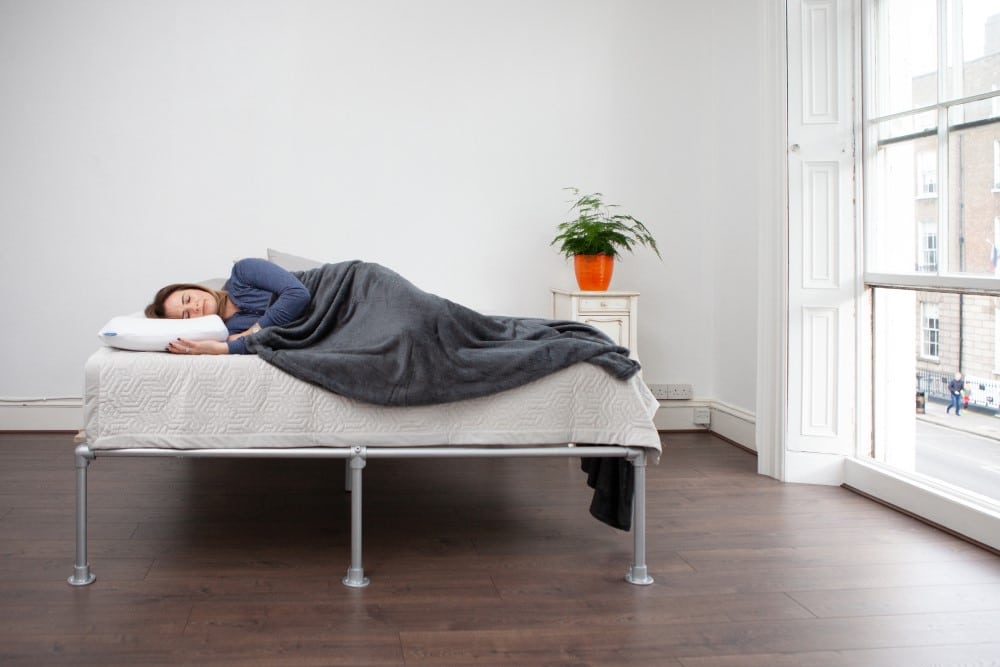
Pillows are often overlooked when it comes to getting a good night’s sleep. But the truth is, choosing the right pillow for your sleep position is just as important as choosing the right mattress. For example, if you sleep on your back, you’ll want a pillow that keeps your head and neck aligned with your spine.
If you sleep on your side, you’ll want a pillow that supports your head and prevents it from shifting during the night. And if you sleep on your stomach (which I don’t recommend!), you’ll want a soft and flat pillow to avoid putting pressure on your neck. Sleeping on the wrong pillow can lead to pain, stiffness, and even headaches. So if you’re not sleeping well, take a closer look at your pillow situation – it might be time for an upgrade!
Summary
The take-home message is that there are simple things we can all do to avoid jaw tension and neck pain. We can keep ourselves healthy and comfortable by being mindful of our posture, taking breaks throughout the day, and massaging our necks and jaws. If you’re experiencing chronic pain or discomfort, please consult a doctor for advice on how to best address the issue. Thanks for reading!
Sources:
- Peck, C.L. and Kraft, G.H., 1977. Electromyographic biofeedback for pain related to muscle tension: A study of tension headache, back, and jaw pain. Archives of Surgery, 112(7), pp.889-895.
- Jensen, R., 1999. Pathophysiological mechanisms of tension-type headache: a review of epidemiological and experimental studies. Cephalalgia, 19(6), pp.602-621.
- Smith, R., Are you experiencing jaw pain, neck pain or headaches? What you need to know about temporomandibular joint dysfunction.
- Björne, A., 2007. Assessment of temporomandibular and cervical spine disorders in tinnitus patients. Progress in brain research, 166, pp.215-219.
- Glaros, A.G., Williams, K. and Lausten, L., 2005. The role of parafunctions, emotions and stress in predicting facial pain. The Journal of the American Dental Association, 136(4), pp.451-458.

